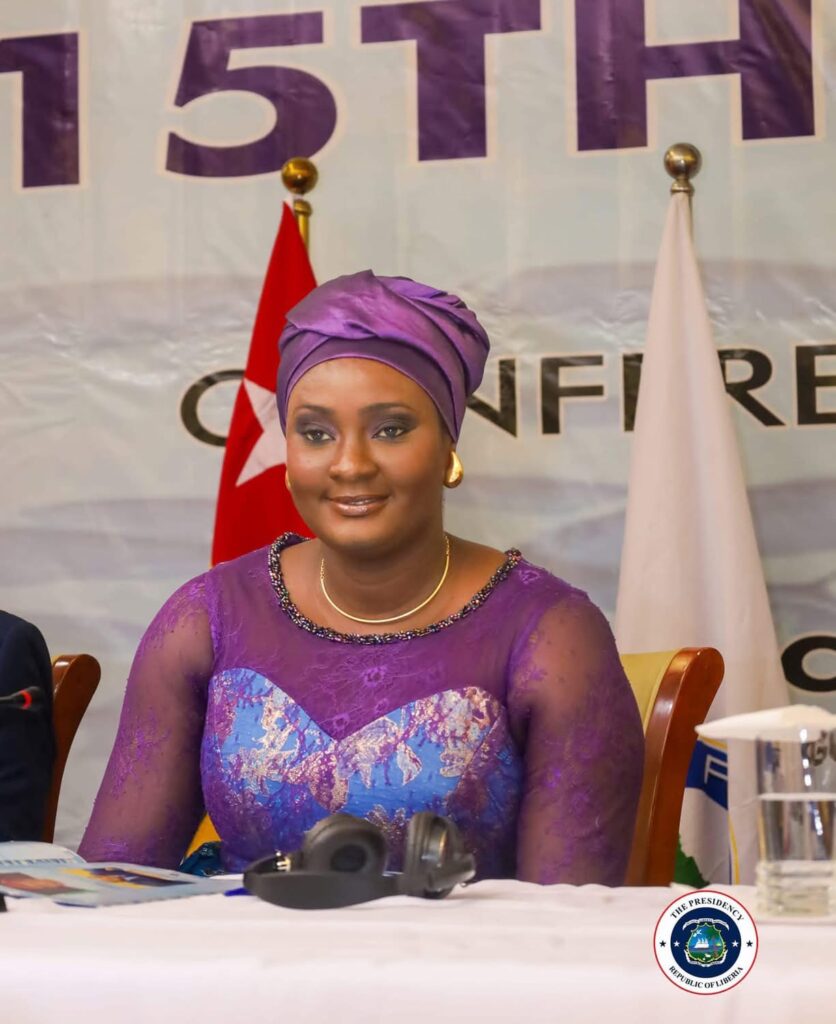By: Staff Writer
Monrovia, Liberia – Liberia has officially assumed the Chairmanship of the Fisheries Committee for the West Central Gulf of Guinea (FCWC) during the 15th Session of the Conference of Ministers held in Monrovia.
The conference, hosted under the theme “Promoting Decent Work and Strengthening Marine Ecosystem Resilience for the Sustainability of the Fisheries Sector,” marks a milestone for Liberia’s emerging fisheries sector.
Speaking at the opening session, Emman Metiah Glassco, Director General of the National Fisheries and Aquaculture Authority (NaFAA), emphasized Liberia’s commitment to driving the FCWC’s agenda for sustainable fisheries governance.
She noted that Liberia’s chairmanship presents an opportunity to strengthen regional collaboration and address critical challenges in the sector.
“Today is a great honor for Liberia as we host this auspicious occasion and assume leadership of the FCWC. We are committed to fostering inter-regional trade, harmonizing policies, and improving fisheries governance to ensure sustainable livelihoods and food security across the region,” said Director General Glassco.
The FCWC and Liberia’s Vision
Established in 2007, the FCWC facilitates cooperation among six member countries: Liberia, Benin, Côte d’Ivoire, Ghana, Nigeria, and Togo.
Director General Glassco commended Ghana’s leadership over the past three years, highlighting its strides in introducing regional sea patrols, seasonal closures, and unified positions on international fisheries issues.
Under Liberia’s chairmanship, Director General Glassco outlined an ambitious vision to expand the FCWC’s membership, harmonize license regimes, and strengthen bilateral cooperation.
Liberia also aims to negotiate Sustainable Fisheries Partnership Agreements (SFPAs) with global partners and mobilize donor support to benefit all member states.
Key Challenges and Commitments
Director General Glassco identified pressing issues, including illegal, unreported, and unregulated (IUU) fishing, declining fish stocks, and climate change.
“Low fish catches and the depletion of resources threaten the economic stability of our coastal communities and food security for millions,” she said.
She urged member states to adopt regional frameworks such as seasonal closures, size limits, and critical habitat protection to reverse these alarming trends.
The conference is set to adopt the “Monrovia Declaration,” a resolution introducing regional closed seasons to aid fish stock recovery.
Capacity Building and International Collaboration
Highlighting Liberia’s efforts in capacity building, Director General Glassco announced partnerships with the Liberia Maritime Training Institute and the Regional Maritime University in Ghana to enhance the technical skills of seafarers.
She also praised the establishment of a Department of Fisheries and Aquaculture Science in Liberia, which is set to graduate its first cohort of students in 2026.
Director General Glassco called on member states to strengthen their commitment to international treaties, including the International Maritime Organization’s (IMO) Cape Town Convention on fishing vessel safety, which Liberia has ratified.
Call to Action
The Director General appealed to FCWC members to meet their financial obligations to sustain the body and ensure effective fisheries governance.
She also encouraged international partners to continue providing technical assistance, capacity building, and research to address the challenges facing the sector.
“Together, we can build a Gulf of Guinea that thrives economically and ecologically. Our shared commitment to sustainable management and climate resilience will define our success,” she said.
Liberia’s Commitment Under the ARREST Agenda
Director General Glassco reaffirmed the Liberian government’s commitment to the FCWC’s goals, aligning with President Joseph Nyumah Boakai’s ARREST Agenda, which prioritizes food security through agriculture and fisheries.
As the conference concluded, Liberia and its regional partners pledged to work together for the sustainable management of the Gulf of Guinea’s fisheries, ensuring economic growth and prosperity for future generations.

